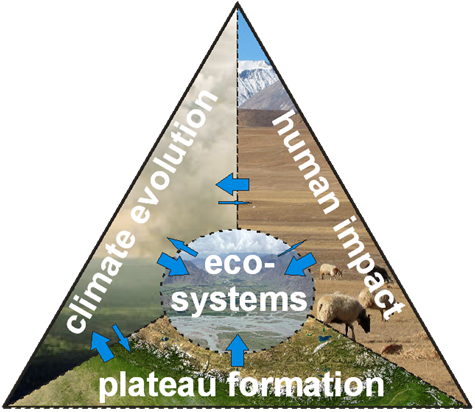Poster, 7th Sino-German Workshop on Tibetan Plateau Research, Hamburg: 03.03.2011 - 06.03.2011
Abstract:
The Tibetan Plateau comprises one of the world‘s most extensive grazing ecosystems. The high-altitude soils store large amounts of carbon – corresponding to 2.5 % of the global soil organic carbon (SOC) stocks (Wang et al. 2001). Grazing is a key factor affecting plant community, productivity and soil element stocks. Given that grazing pressure increased since the 1950s‘ fencing is often considered a suitable tool for presumption on a fencing experiment along an altitude gradient comprising different plant communities. The study aimed in answering following questions: Does grazing exclusion… …improve plant species diversity and fodder quality? …increase above and belowground biomass productivity? …lead to higher SOC and Nitrogen (N) stocks? …change the partitioning pattern of recently fixed C?

